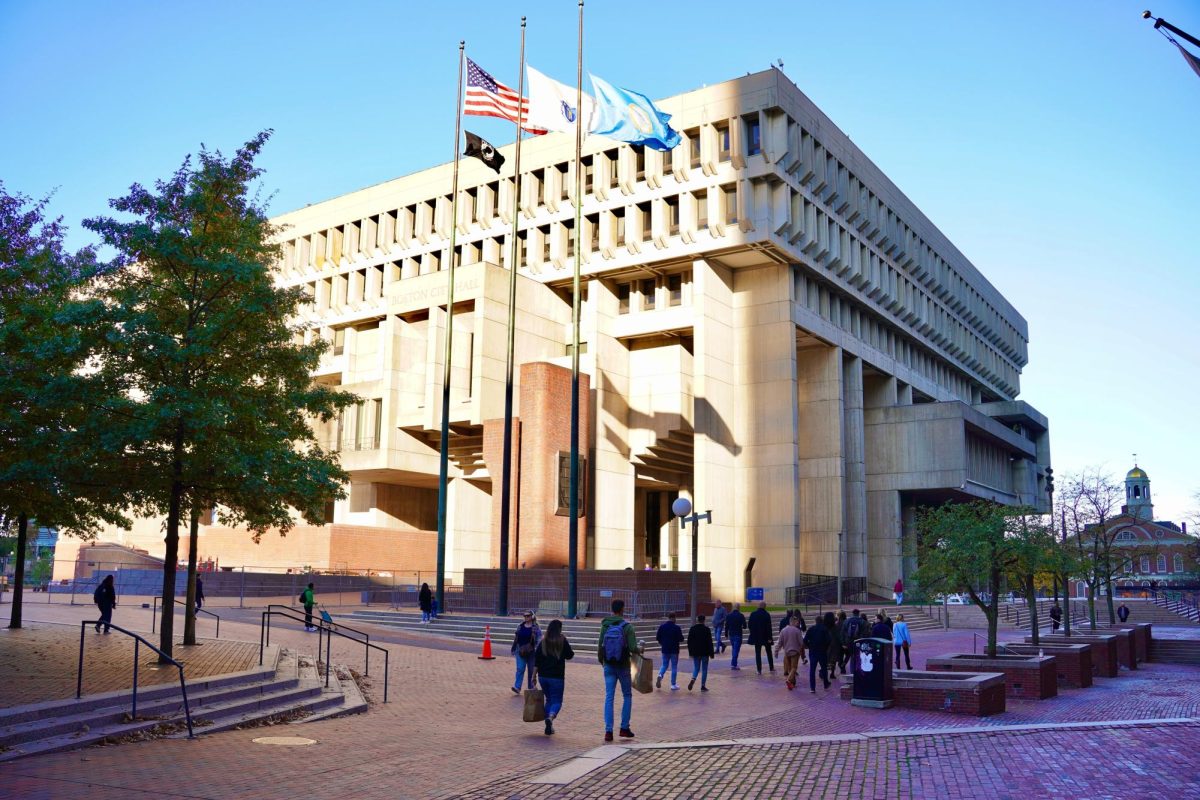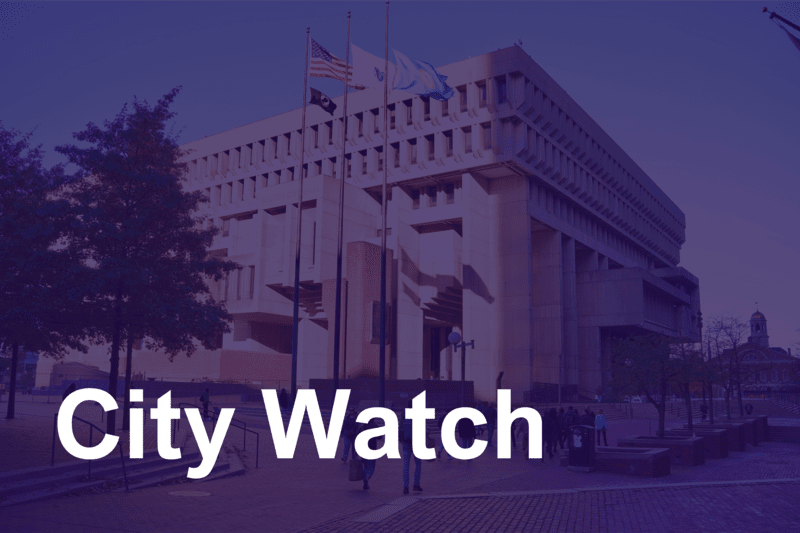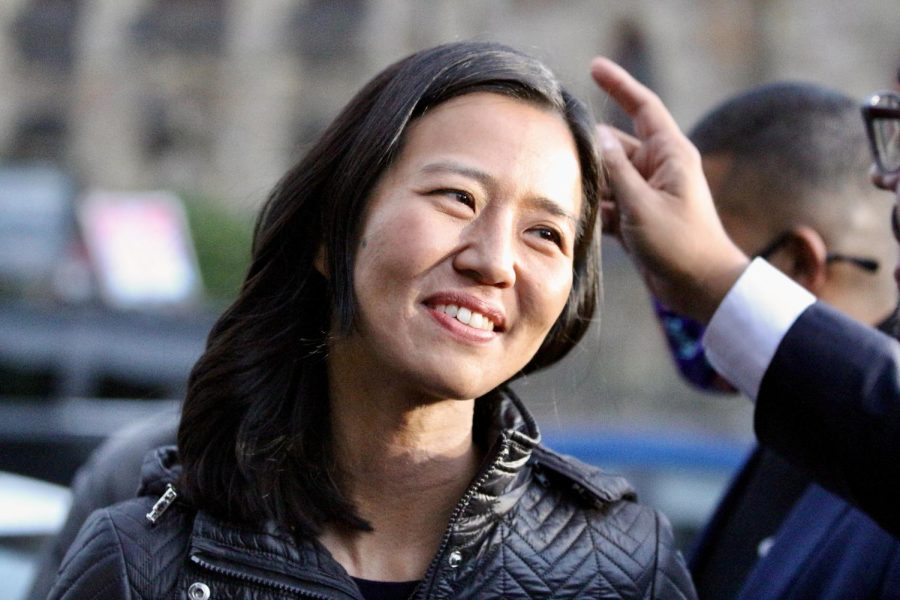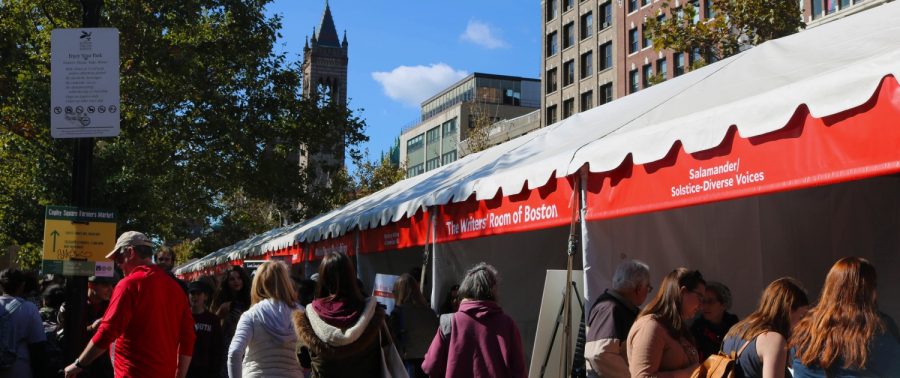Black History Month and two state legislature bills were among the topics generating discussion at Boston’s City Council’s second meeting of the year on Jan. 31. The two points of contention at the meeting were District 6 Councilor Benjamin Weber’s maiden speech and a vote, which ended the council’s debate surrounding a federal grant for the city’s response to terrorism. As is the case every week, you can stream the meeting and review the agenda on the City of Boston’s official website.
Ben Weber starts strong in maiden speech supporting ‘right to counsel’ pilot program
Standing up in his first speech as Weber provided an anecdote which parallels the lives of many Bostonians .
“While running for City Council, I received a phone call from a woman named Mary in West Roxbury,” he said.“She saw that I was running, she heard that I was an attorney and she was calling me for help, saying, ‘I have lived here all my life, I’m on a fixed income and now I can’t afford to live here.’”
Weber’s solution to the inaccessibility of the Boston housing market? Affording tenants the right to legal counsel. According to the ACLU, 90 percent of landlords are accompanied by lawyers in evictions, but fewer than 10 percent of tenants have that kind of representation.
District 6 has long been a center for tenants rights within the city, with Harvard Law School’s Legal Services Center and the organization City Life / Vida Urbana (CLVU) both located within Jamaica Plain. Both organizations have been institutions providing assistance for tenants facing nonpayment evictions.
The bill mimics a proposal in the state’s legislature initially proposed by former mayor Marty Walsh in 2017. In the City Council, although the proposal received a standing ovation from those in attendance, the representatives may have their work cut out for them. Last year’s attempt from Mayor Wu on rent control shows the difficulty of passing laws which revolve around tenants rights.
According to local housing advocates, Weber’s approach is a step in the right direction. When asked about his speech, the CLVU organizing team expressed support for his housing policies, and noted that there is other progress to be made as well.
“Right to counsel against evictions should already be part of due process that tenants have.” said the organizing team in a joint statement. “The right to counsel won’t solve the eviction crisis altogether. We also need strong rent control, the Tenant Opportunity to Purchase Act, investment in community-owned housing, and other protections against mass displacement in Massachusetts because housing is a human right.”
Boston not quite ready to call for ceasefire, but condemns antisemitism, Islamophobia
This week, the city government’s of Cambridge and Somerville both approved resolutions of support for a ceasefire to the ongoing war in Israel and Palestine. Boston City Council last discussed a potential ceasefire on October 18 of last year. In the Jan. 31 session, councilors revisited the topic through two motions condemning antisemitism and Islamophobia, emphasizing to defend both Jewish and Islamic Bostonians from hatred within the city, but not addressing the ongoing humanitarian crisis in Gaza.
The two votes, both unanimous decisions, prompted by the observance of International Holocaust Remembrance Day on Jan. 27 and World Hijab Day on Feb. 1 ,are a response to the rising levels of hate crimes against these communities within the state of Massachusetts since the October 7 attack.
Filing his petition, Councilor Ed Flynn stated that “it is our responsibility as citizens to ensure that these horrific atrocities will not be forgotten,” and “that these memories of these atrocities will contribute towards the prevention of mass crimes, genocide and crimes against humanity.”
“I hope we can suspend and pass this resolution today,” the former council president added.
Councilor Fernandes Anderson also spoke in support of World Hijab Day sharing her own experience as a practicing muslim woman.
“This day serves as a powerful counterbalance to the profound ignorance that continues to abound in non-muslim world about what the wearing of hijab signifies,” said Fernandes Anderson. “Furthermore, the message of the day connotes that the wearing of hijab should be a personal choice and that it loses its meaning when it is forced upon the wearer of the state authority.”
Department of Homeland Security Grant moves forward
In a matter which was filed late and was therefore not included on the council’s recording of the meeting, the City of Boston finally passed the recurring order seeking to approve a grant of over 13 million dollars to “fund planning, exercise, trainings, and operational needs” regarding “threats of acts of terrorism, including chemical, biological, radiological, nuclear and explosive incidents.”
In earlier sessions, Flynn pushed for the unanimous approval necessary to pass this bill but was unsuccessful. On Jan. 31, Flynn brought the issue back to the City Council again at the conclusion of the meeting. The council required either the chair or the vice-chair’s support to suspend the issue and bring it to a vote, and it was vice-chair Brian Worrell who did so.
Given that a hearing was not held on this topic, multiple councilors expressed grievances at the lack of due process on the issue. In particular Councilors Liz Breadon and Julia Mejia both voted present. Councilor Erin Murphy voted yes, but emphasized her concern regarding the lack of a hearing.
Council President Ruthzee Louijeune acknowledged that she had previously brought up concerns regarding how the grant may negatively affect minority neighborhoods, but reversed her opinion after reading documentation from city officials. She also acknowledged that the grant is annual, and dissatisfied councilors will have a chance to comment on the grant again next year.
Councilor Fernandes Anderson makes declaration to city, media on Black History Month
As the meeting was held on the last day of January, councilors were able to give comments regarding Black History Month.
Fernandes Anderson started off with an opening speech acknowledging that “a lot of the issues within African-American communities are not interesting for the media.”
“No one takes notice of all the important work that myself and my colleagues do here in terms of equity,” she said.“No one in the media wants to talk about how you’re building economic development in Roxbury.”
Fernandes Anderson’s speech lightly touched issues regarding a hearing on the opening of a temporary migrant shelter at the Melnea A. Cass Recreational Complex. In particular, the speech offered support for Roxbury residents who voiced their support for welcoming migrants while also acknowledging that this hardship disproportionately affects poorer areas of the state. Anderson thanked Roxbury for having “a spirit of bringing migrants and welcoming them to Roxbury today and forward.”
“It is a very difficult thing to make way in already disinvested or disenfranchised communities,” Fenandes Anderson said, “and African-Americans are often put in those situations where they have to prove their humanity.”
Tension between new South Boston urgent care, nonprofit health center
In a unanimous decision by the city council, the group approved an order for a hearing regarding the impact of urgent care centers in the city of Boston on nearby nonprofit healthcare centers. In particular, the possibility of a new urgent care center run by American Family Care located on West Broadway in South Boston has some officials concerned.
Within Boston, there are 12 community health centers run by Boston University and Boston Medical Center. Independent urgent care centers have rapidly expanded over the past five years, with American Family Care opening 71 locations in 2023. The reasons for rapid expansion are multifaceted. During the COVID-19 pandemic, urgent care centers took advantage of gaps within the healthcare system and heavy demand for things such as vaccinations. The Urgent Care Association has also stated that patient volume increased 60% from 2019 to 2023.
While urgent care centers have been praised for creating convenient and quick care to some, they are not without their issues. For-profit urgent care centers have received large investments from private venture capital, who see financial benefits compared to emergency rooms. One of the reasons why is because urgent care centers do not have an obligation to treat patients who cannot afford the cost of the visit.
Flynn and Murphy were the ones to propose the hearing, following a meeting with members of the Massachusetts Nursing Association and SEIU 1199. Speaking on why the councilors were teaming up with the unions on this issue, Flynn mentioned that “a considerable portion of the workers at South Boston Community Health Center come from working families” and that “this could lead to cuts in programs, services, and staff while leading to decreased healthcare access.”
The concerns come amongst tension surrounding lack of medical care in the area. Flynn included that these urgent care centers are not being used as a substitute for the emergency room, but for non-emergency medical care as well.







